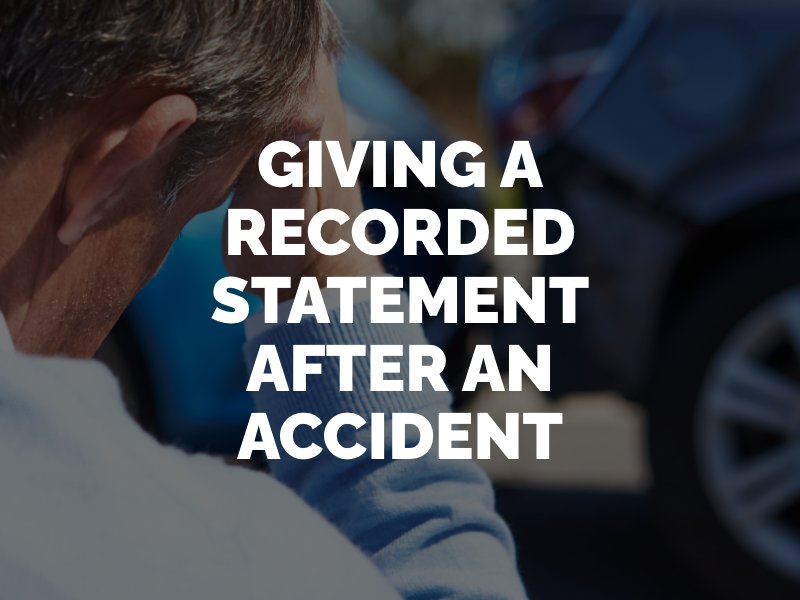Should I Give a Recorded Statement to an Insurance Company After an Accident?
Navigating an insurance claim for an automobile accident in California can be tricky. Insurance representatives are trained to sound friendly and caring, when in reality their goal is to minimize your payout as much as possible to save the insurance company money. Asking for a recorded statement is one of the many tactics an insurer may use to try to gather evidence against you.

What Is the Recorded Statement?
In the aftermath of a car accident, you should contact your own car insurance provider as soon as possible to notify them of the crash. During your conversations with your own car insurance company, they may request an official recorded statement. Do not give one without first consulting with a skilled Los Angeles car accident attorney.
Note that you may be contractually obligated to give your own insurer a statement as its policyholder. Instead of doing so right away, however, tell the insurance adjuster that you will be speaking to an attorney first and submitting a written statement at a later time.
If you are asked by the other driver’s insurance company to give a recorded statement, politely refuse. You are not legally required to give a statement to another person’s insurance provider. Do not fall for language used by the adjuster to pressure you into giving one, such as telling you that your claim cannot be processed until you do. It is always in your best interest to speak to a lawyer first.
Why You Should Not Give a Statement of Any Kind to an Insurance Company
The recorded statement is a common tactic used by car insurance companies to find reasons to reduce payouts and reject claims. The statement is often requested early in the process, sometimes on the same day as the crash. This is intentional; the insurance company wants to record the claimant making a statement before he or she has had time to fully understand fault or learn the severity of his or her injuries.
Later, the recorded statement can be used against the individual to undermine the claim or call the victim’s reliability into question. If you initially thought you weren’t injured and said this in a statement, for example, only to discover hidden injuries later, having you on record stating that you are fine can be used as evidence to challenge the existence or severity of your injuries or their connection to the car accident.
The recorded statement could also be used to try to place fault for the accident on you rather than the insurance company’s policyholder. If you are not yet aware of all of the facts of the case at the time, the statement you give may be inconsistent with the police report or testimony that you provide later. This can hurt your case and paint you as an unreliable witness.
When to Seek Advice From a Car Accident Lawyer
A car insurance company does eventually need a statement from you to aid in its investigation. However, you should give this statement on your own terms, and only after consulting with an attorney. Contact a Los Angeles personal injury lawyer to help you navigate the insurance claims process, ensure that your rights are protected and prevent avoidable mistakes.
Even if you already gave an insurance company a recorded statement, a lawyer can represent you during additional conversations with adjusters to negotiate for fair compensation anyway. An attorney can protect you in the event of liability disputes, inadequate settlement offers, a rejected claim and other challenges.